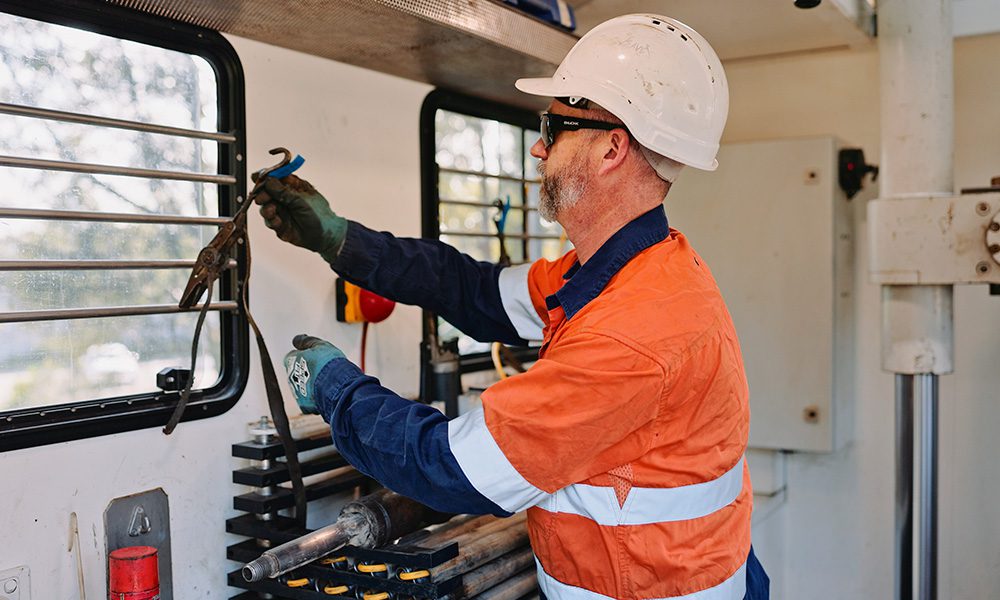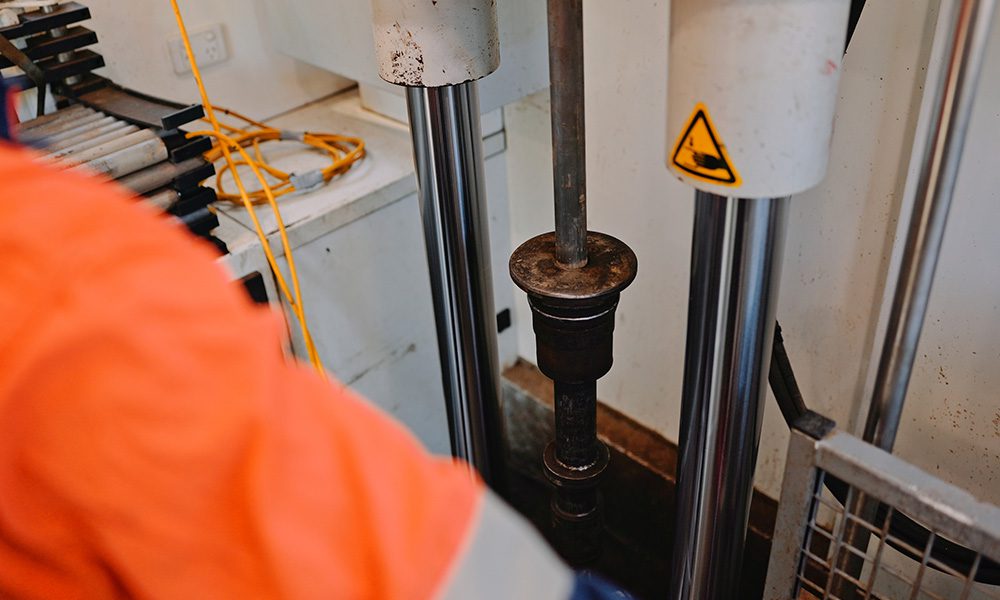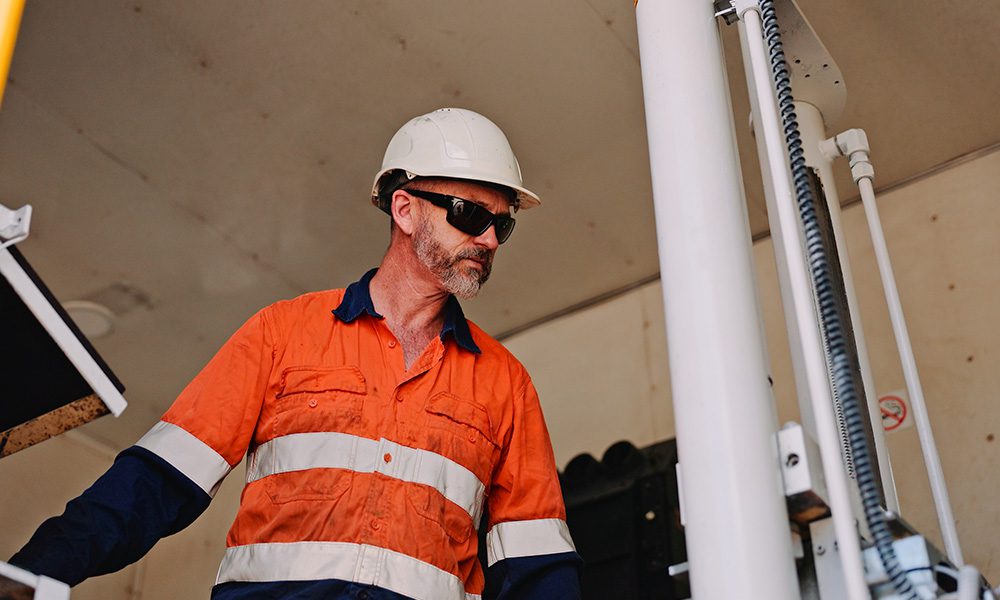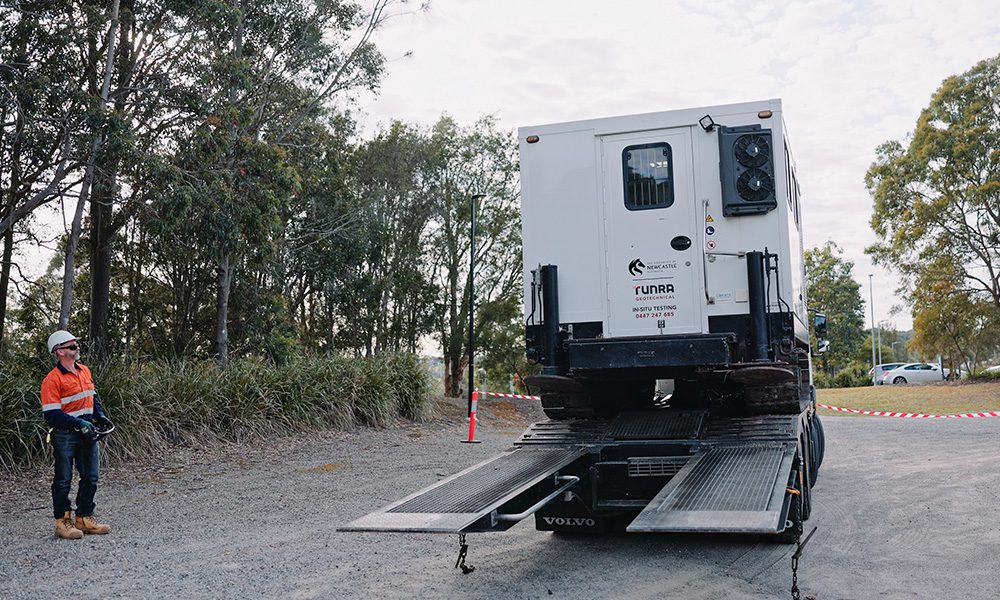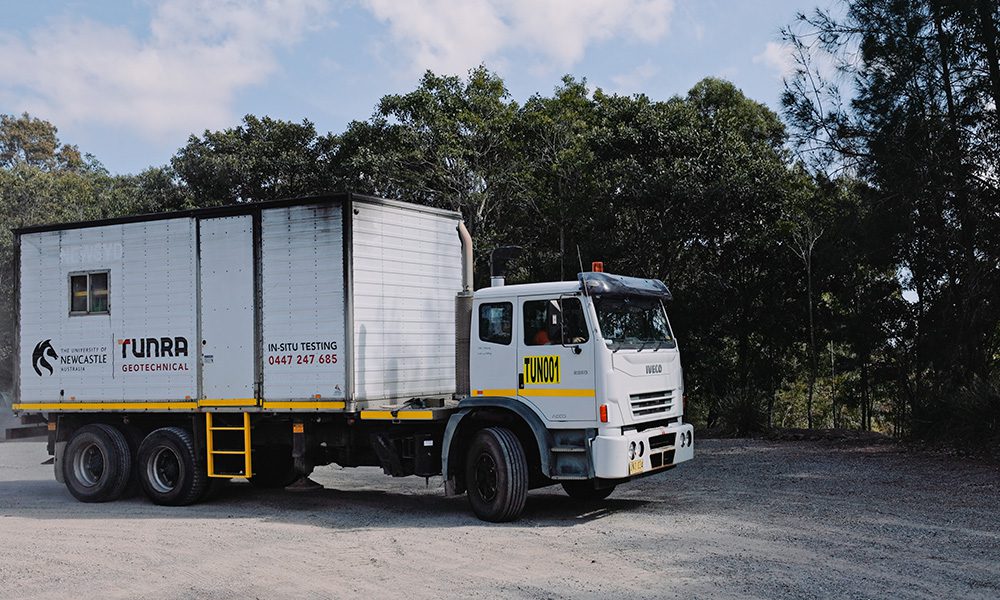Cone Penetration Test (CPT, CPTu and SCPTU)
Efficient, Accurate, and Reliable Cone Penetration Test Services
At TUNRA Geotechnical, we offer professional Cone Penetration Test (CPT), Cone Penetration Test with pore pressure measurement (CPTu) and Seismic Cone Penetration Test with pore pressure measurement (SCPTu) services, designed to serve consultants, engineers, developers, and more. Our cone penetration services are a crucial step in your project’s process, providing detailed sub-surface information for informed decision-making and efficient planning. Choose TUNRA Geotechnical for advanced CPT, where modern technology meets decades of geotechnical experience.
CPT with TUNRA Geotechnical
Crucial Data Collection
Our Cone Penetration Testing offers detailed, real-time data collection. This data forms the basis of reliable and comprehensive geotechnical evaluations, paving the way for successful project outcomes.
Advanced Equipment
We employ sophisticated cone penetration test equipment that complies with ASTM D5778 standards. This ensures high efficiency, exceptional accuracy, and consistent results under diverse subsurface conditions.
Informed Decision Making
Our detailed soil behavior type (SBT) charts and friction ratio profiling from dynamic cone penetration testing equips engineers and consultants with invaluable subsurface information for strategic decision-making.
Highly Capable Team
Our team comprises seasoned professionals who hold qualifications in geotechnical engineering and have vast practical experience in applying cone penetration testing in geotechnical practice. This ensures that our clients receive superior services and expert guidance.
Enhanced Project Efficiency
Our services expedite project timelines by reducing uncertainties related to subsurface conditions facilitating efficient project management and design processes.
TUNRA Geotechnical’s Expertise & Experience in CPT
At TUNRA Geotechnical, we’ve conducted over 200 successful projects where CPT has proven crucial in understanding subsurface conditions and facilitating effective geotechnical designs.
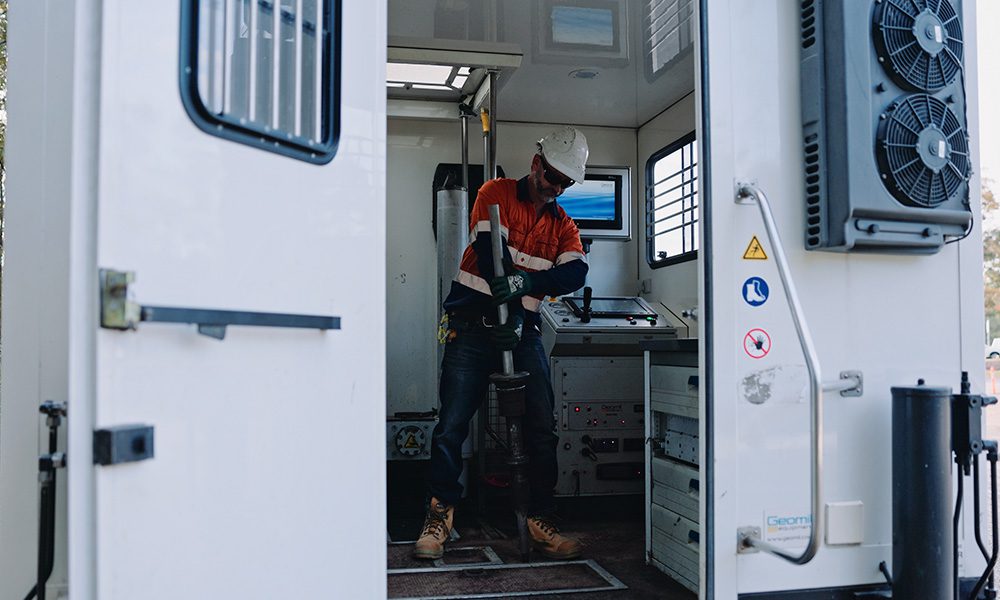
CPT Services at TUNRA Geotechnical
Cone Penetration Testing (CPT) is an essential geotechnical method used to determine the subsurface stratigraphy and geotechnical properties of soils. It’s a vital tool for those seeking accurate and real-time data for their projects.
Frequently Asked Questions
What is Cone Penetration Testing (CPT)?
CPT involves pushing a cone penetrometer into the ground at a constant rate, measuring the resistance to penetration. The data collected provides insights into soil type, density, moisture content, and other key characteristics.
How Does CPT Work?
Cone Selection: Depending on the soil type and project requirements, a specific cone type is chosen.
Site Preparation: The testing site is prepared, ensuring stable and safe conditions.
Penetration Process: The cone penetrometer is pushed into the soil at a standard rate, usually 20 mm/second.
Data Collection: Resistance to penetration is continuously measured, along with other parameters like pore water pressure and shear resistance, depending on the cone type.
Data Interpretation: The collected data is analysed to determine soil properties, stratigraphy, and other essential information.
Utilising CPT Data in Engineering Projects
Engineers can use CPT data for various applications, including:
Foundation Design: Understanding soil properties helps in designing foundations that are both stable and cost-effective.
Slope Stability Analysis: CPT data aids in assessing the stability of slopes and embankments.
Environmental Assessments: Identifying soil contamination and groundwater conditions.
Construction Planning: Providing insights into ground conditions for efficient construction planning.
What is Cone Penetration Testing with Pore Pressure Measurements (CPTu)?
CPTu is an extension of the standard CPT, where a pore pressure sensor is added to the cone penetrometer. This sensor measures the pore water pressure during penetration, providing valuable insights into soil permeability, consolidation properties, and effective stress parameters.
How Does CPTu Work?
Cone and Sensor Selection: A specific cone with an integrated pore pressure sensor is chosen based on the soil conditions and project requirements.
Site Preparation: Similar to standard CPT, the site is prepared to ensure accurate testing.
Penetration Process: The cone penetrometer with the pore pressure sensor is pushed into the soil at a constant rate, typically 20 mm/second.
Data Collection: Along with the standard CPT measurements, the pore water pressure is continuously recorded. This data is used to calculate effective stress and other soil properties.
Data Interpretation: The CPTu data is analysed in conjunction with standard CPT data to provide a detailed understanding of soil behavior, particularly in soft or water-saturated conditions.
Applications of CPTu in Engineering
CPTu data is particularly valuable for engineers working with challenging soil conditions. Applications include:
Soil Characterization: Understanding soil type, density, and water content.
Groundwater Analysis: Assessing groundwater flow and permeability.
Liquefaction Potential Assessment: Evaluating the risk of soil liquefaction in seismic conditions.
Foundation and Embankment Design: Enhancing foundation design with detailed soil behavior insights.
What is Seismic Cone Penetration Testing with Pore Pressure Measurements (SCPTu)?
SCPTu integrates standard CPT, pore pressure measurements (CPTu), and seismic sensors to evaluate the soil’s mechanical and dynamic properties. It’s a powerful tool for geotechnical engineers, providing comprehensive soil characterization, including shear wave velocity (Vs).
How Does SCPTu Work?
Cone and Sensor Selection: A specialised cone equipped with pore pressure and seismic sensors is selected based on the project’s requirements.
Site Preparation: The site is prepared, ensuring stable conditions for accurate testing.
Penetration Process: The cone penetrometer is pushed into the soil at a constant rate, typically 20 mm/second.
Seismic Testing: At specific intervals, the penetration is paused, and seismic waves are generated at the surface. The seismic sensors in the cone record the travel time of the waves.
Data Collection: Along with standard CPT and pore pressure data, the seismic data is recorded, providing information on shear wave velocity and other dynamic soil properties.
Data Interpretation: The collected data is analyzed to provide a detailed understanding of soil stratigraphy, mechanical properties, and seismic behavior.
Applications of SCPTu in Engineering
SCPTu is particularly valuable for complex geotechnical projects, including:
Seismic Design: Evaluating soil behavior under seismic loading conditions.
Liquefaction Assessment: Assessing the potential for soil liquefaction during an earthquake.
Foundation Design: Enhancing foundation design with detailed insights into soil behavior.
Soil Characterization: Comprehensive soil analysis, including mechanical and dynamic properties.
Locally Focussed CPT Near You
TUNRA Geotechnical supports Sydney, Newcastle, the Hunter and beyond. As the go-to geotechnical engineering experts in NSW, we’re ready to rapidly deploy to your job site.
